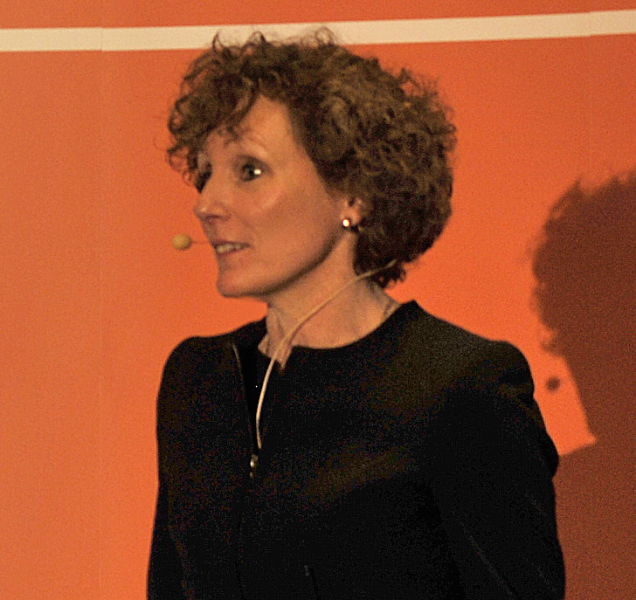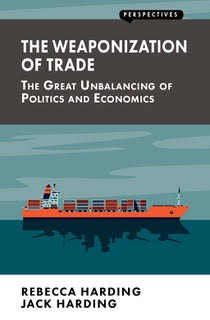Germany’s Election at the end of September was supposed to be dull..!
But now Angela Merkel has the complex task of forming a "Jamaica" coalition. Rumours are proliferating about what happens next....
Germany’s election at the end of September was predicted to be dull. Angela Merkel was to be re-elected, possibly on a larger share of the vote, and the country would be able to focus on defining its role at the heart of a re-generated Europe. In the end, the Alternative für Deutschland [AfD] won 12.6% of the share of the vote – the largest share of parliamentary representation of any extreme right wing party since World War II. Germany’s parliament is now divided between six parties and the centre right CDU-CSU and the centre left SPD parties have been given a warning by voters that “business as usual” is not enough. Their votes shrank to 36% and just over 20% respectively.
country would be able to focus on defining its role at the heart of a re-generated Europe. In the end, the Alternative für Deutschland [AfD] won 12.6% of the share of the vote – the largest share of parliamentary representation of any extreme right wing party since World War II. Germany’s parliament is now divided between six parties and the centre right CDU-CSU and the centre left SPD parties have been given a warning by voters that “business as usual” is not enough. Their votes shrank to 36% and just over 20% respectively.
Inevitably there will be a period of domestic uncertainty. The SPD has already stated that it would not be part of a new Grand Coalition. This leaves Angela Merkel the complex task of forming a “Jamaica” coalition of the CDU-CSU, the liberal FDP and the Greens (so called because the colours are those of the Jamaican flag). This will not be an easy process. There are rumours, following the departure of Wolfgang Schâuble from the Finance Ministry that this post is being left open as a negotiating tool for Angela Merkel as she starts discussions with the other two parties.
Germany is not about to become less domestically stable, however. It may enter a period of self-reflection, and this is not necessarily a good thing while geopolitical uncertainties are rife. But the AfD and die Linke (the extremist left party) account for just over 21% of the vote between them. Populism in Germany, as with other countries in Europe, has been driven by a sense of economic and social exclusion, largely in the eastern regions of Germany and catalysed by Angela Merkel’s controversial response to the migrant crisis in 2015. To some extent it would be possible to argue that the rise of extremism, because it is so predominantly in the east, is a function of the last nearly 30 years since reunification. Where in other countries populism is a function of exclusion from globalisation, in Germany it is driven by a sense of exclusion from Germany’s second “economic miracle”.
Angela Merkel will realise that this domestic uncertainty is dangerous and that she needs to build up from the base her relations with the people who voted for extremism on either side. Germany itself will need time to recover from the inevitable Weltschmerz that will accompany the results.
What is likely is that, for the time being, Germany’s foreign relations will be on automatic pilot. Angela Merkel retains her power and authority internationally but not domestically and it will be likely that matters such as Brexit and European foreign or economic policy will be put on hold until the coalition is stable. Germany has the luxury of strong economic growth and international status to do this. Whether or not the rest of the world can afford Germany the time is another issue.
Dr. Rebecca Harding
CEO
Email: rh@equant-analytics.com
Tel: +44-(0)7803-710711
Twitter: @RebeccaAHarding
Skype: rh.equantanalytics
“The Weaponisation of Trade: the Great Unbalancing of Politics and Economics” 
Rebecca Harding and Jack Harding.
October 25th 2017 * 170pp paperback *£9.99
ISBN 978-1-907994-72-2
From the back cover....
- Trade is being weaponized – and this isn’t good.
- As politicians on both sides of the Atlantic raise the stakes, trade is increasingly a tool of coercion to achieve strategic influence
- This book looks at the risks for us all as trade becomes an instrument of foreign policy, and shows how politicians could turn things around.
- Although trade, wars and foreign policy have been interwoven throughout history, the belligerence of the language today means trade is becoming predominantly political and strategic, rather than economic. Politicians have resorted to economic nationalism, using the rhetoric of conflict to recapture the lost territory of global leadership and to win the hearts and minds of their ‘populist’ electorates.
- The authors of this book explain why this is, why it is so dangerous and also present new data on unseen trade in arms and dual-use goods. These are used to fight proxy wars, wreaking havoc with beneficial trade and increasing migration, which in turn further fuels the fear and the febrile atmosphere at home. They present policy recommendations for reversing these trends: increasing trade finance, promoting the benefits of globalization and controlling the export of weapons.
- We are at an historical juncture as globalization itself is called into question. The political, economic and technological progress of the last 30 years is under threat. Unless governments retreat from their current rhetoric, the scope for mistrust and retaliation will grow. There will be no winners.
Comments from experts -
“A new sort of trade negotiations are about to dominate the political agenda of the major powers. At a time when the Trans-Pacific Partnership and the North American Free Trade Agreement are being revisited and Brexit is being negotiated, this book shows how the economic benefits of trade are being tied to countries‘ strategic foreign policy objectives, leading to win–lose bargaining and greater international tensions. It also examines trade in the arms and dual-use sectors, providing a glimpse into hidden Russian–Syrian and Chinese–North Korean flows. The Hardings’ book is an ominous and eye-opening preparation for the weaponization of trade to come.” Dame DeAnne Julius, chair of the Council of University College London and former chair of the Royal Institute of International Affairs
“An invaluable guide to the new world economic order – shaped by Brexit, Donald Trump and the rise of China. In this new world, trade can become a weapon for political aggression rather than a benign instrument for economic progress. A must-read for everyone seeking to understand the emerging twenty-first-century economy.” Andrew Sentance, Senior Economic Adviser to PwC and former member of the Bank of England’s Monetary Policy Committee
“The politics of trade today are to say the least challenging, and this makes the Hardings’ book a timely and thought-provoking work. This is a compelling read for all those engaged in the world of trade – giving us fresh insights, an authoritative analysis and accessible interpretation of the present situation and the dangerous trajectory we find ourselves on.” David Hennah, Joint Chair, World Trade Board
“At a moment when global trade flows and trade policies are in more flux than at any time since the formation of the post- Second World War settlement, this book unpacks the reality of the known as well as the unknown ‘knowns’ of world trade”. Iain Anderson, Executive Chairman of Cicero
Dr Rebecca Harding is the CEO of Equant Analytics. She was formerly Chief Economist at the British Bankers Association and a Senior Fellow at London Business School. Jack Harding is studying for a PhD in European Security at University of Glasgow. He holds an MA in Intelligence and International Security from Kings College, London.
October 25th 2017 * 120pp paperback * £9.99 ISBN 978-1-907994-72-2
Trade orders to: NBN International
Tel: +44 (0) 1752 202301 orders@nbninternational.com
PRE-PUBLICATION ORDERS, WITH FREE UK P+P GO TO http://londonpublishingpartnership.co.uk/wot-advance-purchase/
-NB: See also Dr Rebecca Harding’s article in the WCoMC Newsletter of March 2017 - http://wcomc.org/2017Mar31-2 Trade and Security Post-Brexit… “The UK is looking for a deal and we have two bargaining chips: we owe the EU money and the EU needs a fully-integrated security policy that includes UK Intelligence Services....”
